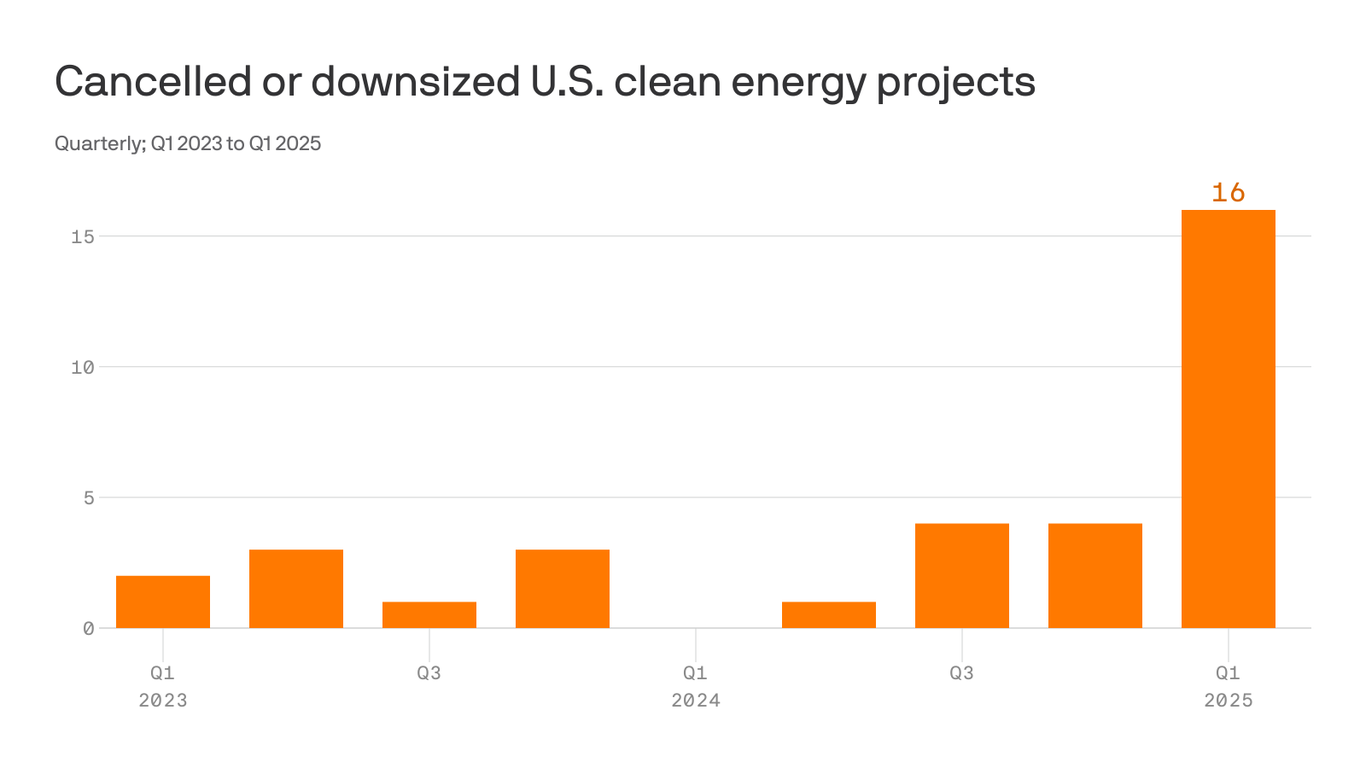Manufacturing's Generational Divide: 4M Jobs Await, But Gen Z Turns Away
Manufacturing
2025-04-17 16:25:00Content

A New Career Revolution: Gen Z Reimagines Professional Success
Young professionals are breaking traditional career paths, steering away from conventional corporate trajectories and embracing skilled trades with unexpected enthusiasm. Electricians and plumbers are becoming the unexpected heroes of this professional transformation, offering lucrative opportunities that challenge the traditional white-collar narrative.
While these trades promise substantial earning potential and job security, Gen Z remains surprisingly selective. Despite the robust demand for skilled workers, they're strategically avoiding low-wage manufacturing jobs that offer minimal financial growth and limited career advancement.
This generation is demonstrating remarkable career discernment, prioritizing roles that provide:
• Competitive compensation
• Meaningful work
• Opportunities for skill development
• Faster entry into the workforce
• Lower educational debt
Trades like electrical work and plumbing represent more than just jobs—they're becoming pathways to financial independence and professional satisfaction. By choosing these specialized careers, Gen Z is redefining success on their own terms, proving that traditional corporate climbing isn't the only route to professional achievement.
The message is clear: smart, strategic career choices trump conventional expectations, and skilled trades are emerging as the unexpected champions of professional opportunity.
The Skilled Trades Revolution: Gen Z's Bold Career Pivot Beyond Corporate Cubicles
In an era of rapidly evolving professional landscapes, a remarkable transformation is unfolding among young professionals. Generation Z is challenging traditional career narratives, rejecting the once-glorified corporate trajectory and instead embracing hands-on, technically sophisticated trades that promise both financial stability and personal fulfillment.Breaking Stereotypes: The New Career Frontier for Young Professionals
Reimagining Professional Success
The contemporary workforce is witnessing an unprecedented shift as young professionals recalibrate their career expectations. Electricians and plumbers are no longer viewed as secondary career paths but as sophisticated, technology-driven professions offering substantial economic opportunities. These trades demand advanced technical skills, problem-solving capabilities, and continuous learning—attributes that resonate deeply with Generation Z's professional aspirations. Modern trade careers represent more than just manual labor; they embody technological innovation, environmental sustainability, and critical infrastructure development. Young professionals are recognizing that these roles offer competitive compensation, job security, and meaningful contributions to society, unlike many corporate positions that often feel disconnected from tangible impact.Economic Dynamics of Skilled Trades
The economic landscape is fundamentally reshaping traditional employment paradigms. While corporate entry-level positions frequently offer minimal compensation and limited growth potential, skilled trades present a dramatically different narrative. Electricians and plumbers can rapidly progress from apprenticeships to well-compensated professional roles, often achieving financial independence significantly faster than their corporate counterparts. Vocational training programs have evolved, integrating cutting-edge technologies like digital diagnostics, renewable energy systems, and advanced mechanical engineering. These programs attract tech-savvy generations seeking hands-on, intellectually stimulating careers that blend practical skills with technological expertise.Navigating Workplace Expectations
Generation Z's professional philosophy fundamentally diverges from previous generations. They prioritize meaningful work, personal growth, and workplace flexibility over traditional corporate hierarchies. Skilled trades offer precisely these attributes—autonomous work environments, immediate problem-solving opportunities, and the ability to see tangible results of their efforts. The rejection of factory jobs with minimal compensation reflects a broader societal shift. Young professionals are no longer willing to compromise their professional satisfaction for marginal financial returns. They seek careers that provide not just income, but personal fulfillment, skill development, and a sense of purpose.Technological Integration in Trades
Contrary to outdated perceptions, modern trades are deeply technological. Smart home systems, renewable energy installations, and complex industrial infrastructure require professionals who can seamlessly integrate advanced technological solutions. Electricians and plumbers today are essentially high-tech problem solvers, utilizing sophisticated diagnostic tools, programming skills, and innovative engineering approaches. This technological sophistication attracts a generation raised on digital platforms, offering them careers that are both intellectually challenging and financially rewarding. The convergence of traditional craftsmanship with cutting-edge technology creates an irresistible professional proposition for forward-thinking young professionals.Societal and Economic Implications
The mass migration of talented young professionals towards skilled trades signals a profound economic restructuring. As traditional corporate models become increasingly obsolete, trades emerge as resilient, adaptable career paths. This trend not only addresses critical infrastructure needs but also challenges long-standing societal perceptions about vocational work. The implications extend beyond individual career choices, potentially reshaping educational priorities, workforce development strategies, and economic policy. Institutions are gradually recognizing the need to support and elevate vocational education, understanding its critical role in maintaining technological and infrastructural progress.RELATED NEWS
Manufacturing

Pharma Giant Merck Pumps $1B into Cutting-Edge U.S. Manufacturing Hub
2025-04-29 13:17:52
Manufacturing

Bridging Gaps: How UT's Innovative Collaboration Could Solve America's Defense Manufacturing Crisis
2025-03-20 13:30:05
Manufacturing

Green Energy Exodus: Massive Project Cancellations Signal Urgent Industry Shift
2025-04-17 08:00:00





